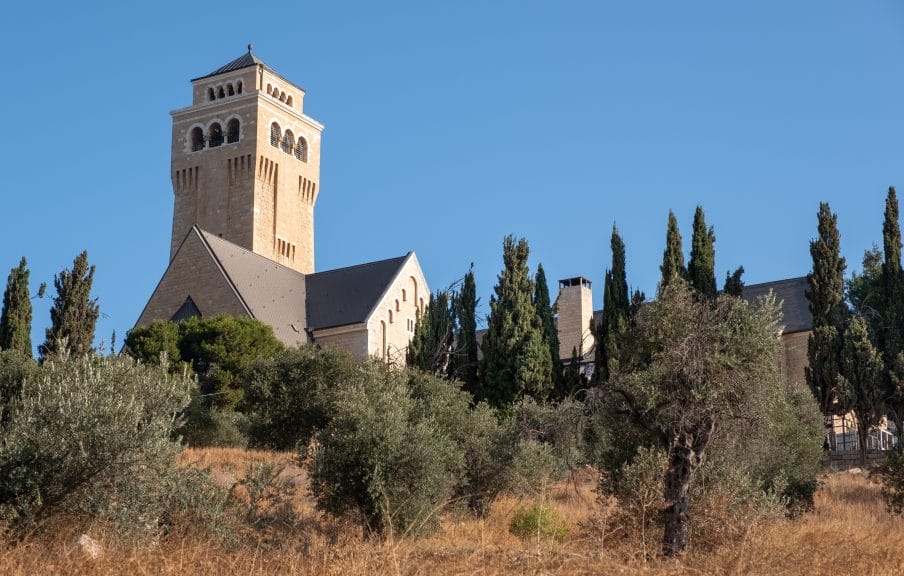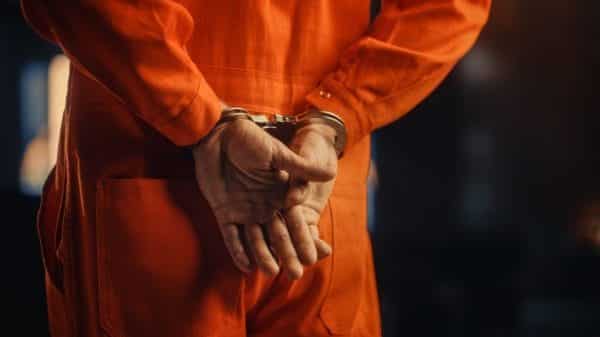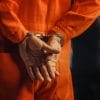In the wake of the Oct. 7 Hamas attack on Israel, several countries in the Middle East have once again become hotbeds for anti-Zionist militant activities.
In response, Israel, with backing from the US, has responded with explosive shows of force and threats of further retaliation.
Such actions demonstrably breed more animosity among and against innocent Palestinian civilians. It also connects to the growing amount of popular opposition inside and outside Israel.
As people shaped by the endless War on Terror, it’s ironic how Zionists like Biden say that want these conflicts to end, while simultaneously enabling men like Netanyahu to advance an unstable status quo by refusing to call for a ceasefire.
Some may argue the terrorists started this fight, and retaliation is justified.
However, this view ignores the humanity of the thousands of innocents murdered by one of the most powerful military forces on the planet.
It also ignores the reasons behind these militant anti-Zionist organizations forming and the foreign meddling that allowed Zionism to take root in the first place.
The Balfour Declaration
The regional conflict did not start overnight. Nor is it due to inherent violent tendencies that some people and organizations would like you to believe.
There are reasons behind the current fighting in the Middle East that can be traced back by just a hundred years. Singular, not plural.
Following the Sinai and Palestine campaign of World War I, the Ottoman Empire was split into several new states in November 1918.
One of these new states was Palestine.
Initially, Palestinian Arabs assumed that by siding with the United Kingdom and its allies, they would be guaranteed independence per the McMahon-Hussien Correspondence.
However, once the Ottomans were forced out, the United Kingdom imposed the 1916 Sykes-Picot Agreement. This was a secret treaty drafted with France that was backed by Russia and Italy.
This agreement arranged for Palestine and other Middle Eastern territories to fall under their control once the Ottomans were defeated.
In other words, independence was secured on a technicality. The Ottomans were gone, only so Britain could immediately subjugate Palestine rather than granting the right to self-determination as promised.
What’s more, the Balfour Declaration of 1917, drafted by the British Government, officially implemented Zionism.
Britain then recognized Palestine as the new Jewish homeland. The country hoped that Jews facing anti-semitism abroad would have a permanent refuge to escape to.
Zionism
There are several branches of Zionism with differing methods and attitudes. The common throughline is the idea that Jewish people deserve to move back to Israel, as it is their ancestral homeland.
However, one of the main reasons behind the ongoing hostilities is that the same region was resettled over thousands of years. This meant that its inhabitants had no choice but to accept new settlers onto their land.
Anti-semitism is prevalent among some Palestinian rebel groups. However, it is not the root cause of the violence. Instead, one could argue that it is a side effect of decades of subjugation.
Some may also argue that Palestinian sovereignty was honestly considered, and they only have themselves to blame for taking drastic measures instead of peacefully allowing the transition to occur.
Again, though, history shows this wasn’t necessarily the case.
Setting Up for Disaster
In December 1917, the mayor of Jerusalem at the time, Hussein al-Husseini, surrendered the city to General Edmund Allenby.
Not long after the occupation of Palestine, al-Husseini died. Then, his brother, Musa Kazim, was appointed as the city’s new mayor.
From 1918 to 1920, Musa Kazim and other Palestinian leaders organized several marches and protests against this imposition.
However, the Muslim-Christian Associations that formed were largely powerless against British authorities who withheld the right to remove from office anyone who did not serve their Zionist interests.
In early April 1920, the Nabi Musa riots broke out after several Palestinian nationalist leaders delivered anti-Zionist speeches. This sparked a week of violence throughout Jerusalem.
Musa Kazim was one such speaker. Despite conflicting reports on whether Jews or Palestinians sparked the conflict, it hardly mattered since Palestinians took part in violence against their occupiers.
Sir Ronald Storrs, the British military governor of Jerusalem who appointed Musa Kazim as mayor in the first place, dismissed him as mayor. He then filled the vacancy with his political rival Raghib al-Nashashibi.
In his memoir, Storrs said, “I warned [al-Husseini] that he must make his choice between politics and the Mayoralty.”
The Writing on the Iron Wall
To further undermine organization attempts, one of Britain’s political allies, Musa Hadeib, helped form the Muslim National Associations as a political counterweight.
According to Israeli historian Benny Morris, they would directly receive funding from the Jewish Agency for Israel, then called the Palestine Zionist Executive, headed by Chaim Weizmann, who would become Israel’s first president.
To make matters worse, many key figures of the Zionist movement had no intention of taking their new neighbors’ concerns seriously in the first place.
This is not up for debate. Weizmann himself admitted as much:
“The poor ignorant fellah [Arabic for peasant] does not worry about politics, but when he is told repeatedly by people in whom he has confidence that his livelihood is in danger of being taken away from him by us, he becomes our mortal enemy. . . The Arab is primitive and believes what he is told.”
Despite this arrogant position, some Zionist leaders recognized this attitude would inevitably sow more discontent. One such leader is David Ben-Gurion, Israel’s first prime minister.
“Let us not ignore the truth among ourselves… politically we are the aggressors, and they defend themselves… The country is theirs because they inhabit it, whereas we want to come here and settle down, and in their view, we want to take away from them their country.”
As Palestinians watched the Zionist agenda progress unimpeded, many began to lose hope of maintaining their way of life through the proper political means.
Inevitably, more skirmishes and riots broke out during the 1920s, notable among them were the Jaffa riots in 1921.
The Roots of the Current Establishment
Directly preceding the Jaffa Riots, control over Palestine was handed over from Storrs to High Commissioner Herbert Samuel in 1921.
As a Jew himself, Samuel’s appointment drew concerns that he would favor Zionist interests over Palestinians.
According to Allenby, Samuel’s appointment violated military law and the Hague Convention. This is because he was put in power without approval from the occupied Palestinians.
During his tenure, Samuel witnessed the rise of several key figures whose legacies endure to this day.
Figures such as Zionist entrepreneur Pinhas Rutenberg, Revisionist Zionism founder Ze’ev Jabotinsky, and Arab nationalist Mohammad Amin al-Husseini.
Thanks to Samuel, Rutenberg started an electric power company in 1923 with backing from other Zionists. Today, it’s known as the Israel Electric Corporation, one of the Gaza Strip’s only sources of energy.
Rutenberg, with initial backing from Jabotinsky, also helped establish Haganah in 1920.
A Zionist paramilitary force meant to protect Jewish settlers themselves without relying on British support, Haganah is one of three predecessors to the Israeli Defence Force.
Jabotinsky’s True Colors
Over time, Jabotinsky became disillusioned with Haganah and the centrist General Zionist movement of his time.
An ardent admirer of Fascist Italy, he formed the far-right youth group Betar in 1923, and its counterpart the Revisionist Party in 1925.
Then in 1931, Jabotinsky and his Revisionists split from Haganah to form another paramilitary organization, Irgun, the second IDF predecessor which would be responsible for several terrorist acts in the years to come.
That same year, the Revisionists demanded the Seventeenth Zionist Congress to disregard Palestinians altogether.
Jabotinsky argued the goal of Zionism should be the formation of a Jewish ethnostate, made possible by absorbing modern-day Jordan.
While Congress rejected Jabotinsky’s radical ideas at the time, his Revisionist movement still gained a significant following among voters, and in 1935, his followers elected him president of their New Zionist Organization.
With Benito Mussolini’s backing, Jabotinsky established the Betar Naval Academy on Italian soil in 1934.
For three years, Betar received military training alongside the Blackshirts, though the alliance was broken in 1937 once Mussolini threw in with Adolf Hitler.
Unfortunately, Jabotinisky’s beliefs still live on through his personal aid’s son, current Israeli Prime Minister Benjamin Netanyahu.
The Revisionist Likud party Netanyahu leads is derived from the Herut party, and Betar before that.
Al-Husseini’s Rise to Power
During World War I, Amin al-Husseini turned against the Ottomans during the Arab Revolt, so he was no stranger to working with the British.
However, like Musa Kazim and others before him, al-Husseini’s Arab nationalist politics came into direct conflict with the Zionist agenda.
The day the Nabi Musa riots erupted, Al-Husseini was also one of the anti-Zionist leaders delivering speeches to the Palestinian populace.
As such, British authorities charged al-Husseini with instigating the violence, but he fled to Syria before he could serve his 10-year sentence.
Coincidentally, they also sentenced Jabotisky to 15 years for Haganah’s role in the riots.
When British authorities raided their building, they found a cache of illegally obtained weaponry and ammunition and arrested Jabotisky and his men.
In an attempt to elicit favor with both factions, Samuel pardoned both men and their followers.
Soon after, al-Husseini was appointed as Jerusalem’s next Mufti after the death of his predecessor and half-brother Kamil, despite receiving fewer votes than his Nashashibi clan rivals.
Ignoring his anti-Zionist, Arab nationalist politics, the Mandatory government regarded al-Husseini very well initially, but only as a potential figurehead whose connections they could exploit.
Likewise, al-Husseini would use his appointment to consolidate political power for the anti-Zionist cause.
He did this by conflating Zionism with anti-Islamism, much in the same way anti-Zionism is conflated with anti-semitism.
If the British withdrew support however, he would publically denounce further violence to maintain his position.
Unfortunately, history shows he would not stick to this strategy forever. Or rather, not with the British.
Please see my next article to read the rest of this overview in Part 2.














